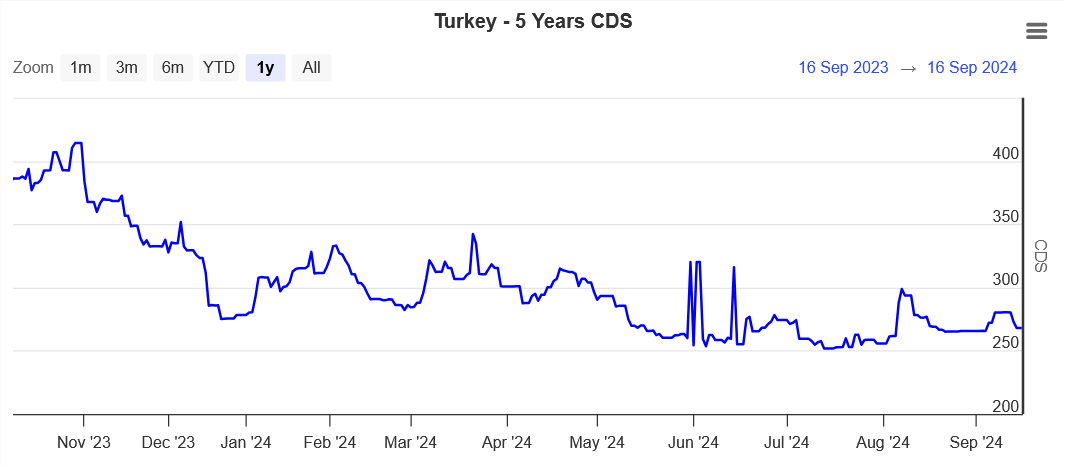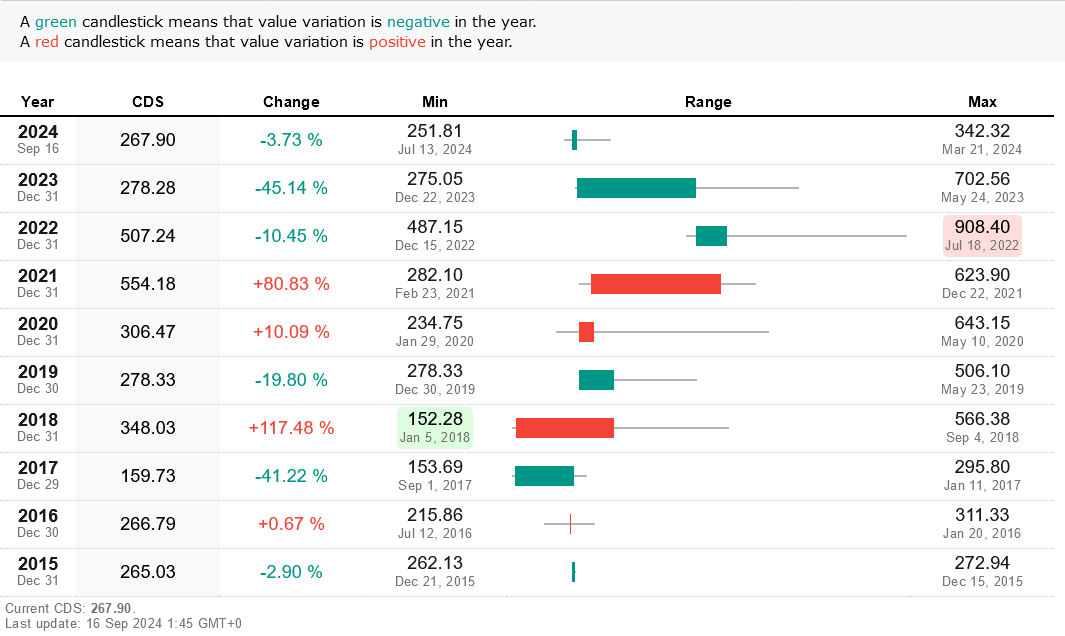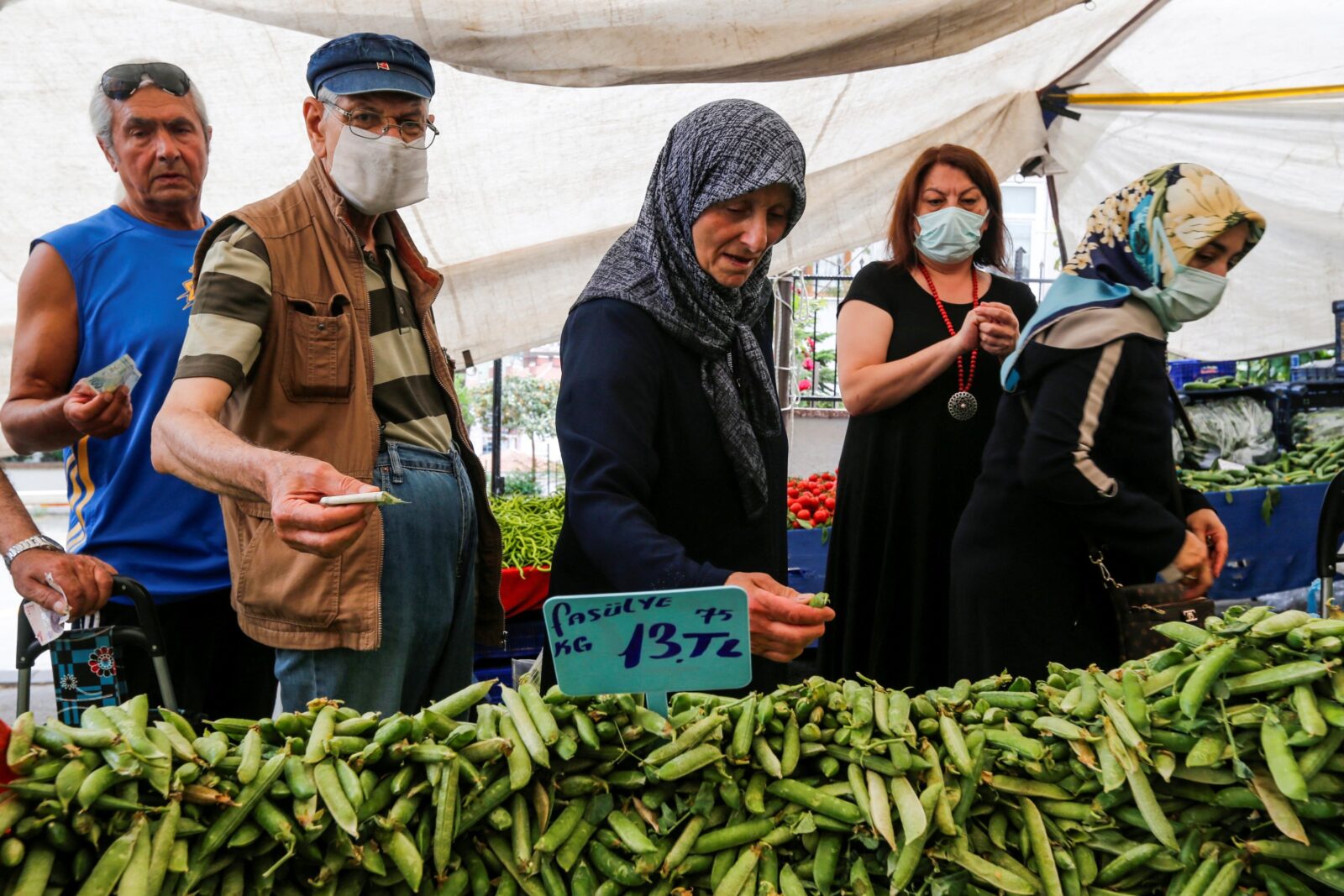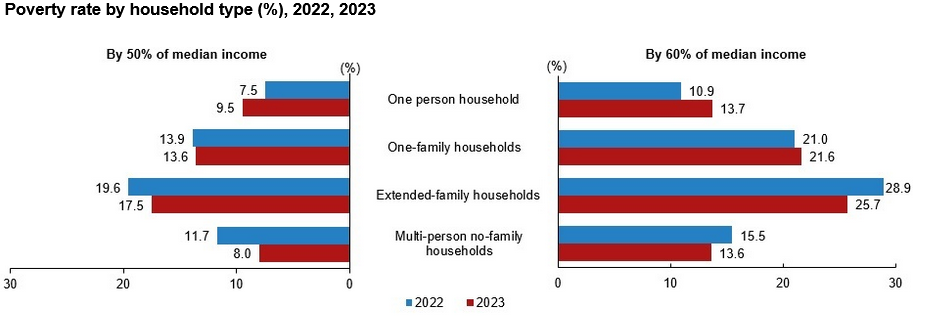OECD sees rising investor interest in Türkiye amid policy shifts
 People shop at Grand Bazaar in Istanbul, Türkiye, November 4, 2022. (Reuters Photo)
People shop at Grand Bazaar in Istanbul, Türkiye, November 4, 2022. (Reuters Photo)
The Organisation for Economic Co-operation and Development (OECD) told CNBC-e that Türkiye’s return to traditional macroeconomic policies has significantly boosted investor interest in Türkiye.
The organization highlighted that stable and predictable policies could transform portfolio investments into direct investments, further accelerating international capital flows into the country.
Macroeconomic stability key to investor interest in Türkiye
In its assessment, the OECD stated, “Türkiye‘s CDS premiums declined and in June, net international reserves excluding swaps turned positive for the first time since early 2020. Despite the positive developments in recent months, economic challenges remain. Macroeconomic stabilization policies need to continue to take full advantage of the international environment and achieve further rating upgrades.”

The OECD also noted that Türkiye’s credit default swap (CDS) premiums have declined, while net international reserves turned positive for the first time since early 2020. Despite recent positive developments, economic challenges persist, with the OECD underscoring the need for continued macroeconomic stability to secure further credit rating upgrades.

Inflation targets and monetary policy outlook
The OECD expressed optimism regarding Türkiye’s inflation goals, supporting the Central Bank of Türkiye’s (CBRT) year-end inflation target of 38%.
“According to the OECD’s Spring 2024 projections, average annual inflation is around 55.5%, which is close to the central bank’s forecasts. The central bank has tightened monetary policy to ensure price stability, significantly raising the policy rate and taking steps to reduce excess lira liquidity. Moreover, the Central Bank announced its determination to keep monetary policy tight until there is a meaningful improvement in the inflation outlook.” OECD economists said.
However, they added, “Inflation expectations have eased, but are still elevated. Monetary policy conditions need to remain tight and fiscal prudence needs to be maintained until inflation is firmly on target”
The OECD warned against prematurely easing monetary policy in Türkiye. The organization expressed concerns that a too-early rate cut could undermine the central bank’s credibility and jeopardize the country’s economic progress. Instead, the OECD recommended maintaining tight monetary and fiscal policies until inflation is consistently brought under control.

Structural reforms and long-term growth potential for Türkiye
The OECD highlighted the role of structural reforms in stabilizing Türkiye’s macroeconomic framework and boosting long-term growth potential. Specifically, labor market reforms were deemed crucial, with the OECD noting that minimum wages should remain affordable for firms. It emphasized that reforms could promote the creation of more formal jobs, especially for women, while increasing economic prosperity and state revenues.
“The shift from severance pay to a broader unemployment insurance system and flexible permanent contracts can help create more formal employment and improve welfare,” the OECD added.

Minimum wage and poverty levels in Türkiye
The OECD also touched on the issue of minimum wages, citing that Türkiye’s current minimum wage, averaging around $500 per month, remains a critical challenge.
According to August 2024 data from the Confederation of Turkish Labor Unions (Turk-Is), the hunger threshold in Türkiye stands at ₺19,271 ($566.78), while the minimum wage is ₺17,002, indicating a shortfall for many workers. The OECD warned that while the minimum wage has occasionally risen above the hunger threshold, inflationary pressures continue to push it back below the line.



